30 Best Sci-Fi Books of All Time
60 Sci-fi Books That All Science Fiction Fans Must Read

Whether you're looking to dive into the great sci-fi classics you missed out on or you're looking to delve into brand new tales from up-and-coming indie authors, you're sure to find something that will spark creativity and excitement for you. Science fiction and fantasy novels provide us with allegories, cautionary tales, and deep dives into the human condition told through the lens of the fantastical and the cutting-edge.
The Best Sci-fi Origins Books
Where did it all begin? Read these early tales with impossible futures, fascinating creatures, time travel, and alien invasion!
Frankenstein; or, The Modern Prometheus by Mary Shelley
Mary Shelley’s Frankenstein brought us the iconic monster made by Victor Frankenstein. Considered the first true science fiction novel of the modern era, it would foreshadow genetic tinkering stories of the future.
The Blazing World by Margaret Cavendish (also called The Description of a New World, Called the Blazing-World)
Considered to be the first science fiction work, in the 17th century, Duchess of Newcastle Margaret Cavendish wrote of a utopian world.
Ozma of Oz by L. Frank Baum
The third Oz book by L. Frank Baum features Tik-Tok, the wind-up clockwork man Dorothy Gale encounters in the Land of Ev. Tik-Tok is basically one of the first robots in literature. Other wacky features in Ozma of Oz include a sand-sailing boat and lunch pail tree.
The Time Machine by H.G. Wells
A 19th century classic by Wells, depicting time travel and inspiring science fiction tales for over a century.
The War of the Worlds by H.G. Wells
The book would go on to inspire a radio program that terrified people into thinking Martians were actually invading Earth. Wells would kickstart first contact stories and alien invasion at the same time, offering up a cautionary tale that touches sci-fi to this day.
The Best Sci-Fi Space Epics Books
Transport yourself across the universe with these pillars of world-building in science fiction, all of which are either now adapted for TV or film or soon will be.
Dune by Frank Herbert
Frank Herbert’s Dune is considered a masterwork of world-building and family intrigue, inspiring other famous series and their respective houses. In the first book, Paul Atreides encounters the resident free people of the planet Arrakis (Dune), the Fremen, and achieves a destiny of messianic proportions. Dune recently graced the big screen in a new adaptation by Denis Villeneuve.
Binti by Nnedi Okorafor
Nnedi Okorafor's Binti novella series begins with Binti, a Hugo-award-winning Africanfuturistic science fiction horror story published by Binti is the first of the Himba people ever to be offered a place at Oomza University, the most exalted institution of higher learning in the galaxy. She faces the choice to accept the offer and give up her place in her family so that she can travel among the stars. Hulu has ordered a pilot for Binti.
Foundation by Isaac Asimov
The beginning of the Foundation series reveals the “psychohistory†developed by mathematician Hari Seldon. Seldon would establish a new empire called Foundation to preserve the culture from societal collapse. Foundation debuted as a TV show on Apple TV in 2021.
Embers of War by Gareth L. Powell
Gareth L. Powell's award-winning trilogy Embers of War follows the war-weary crew of the sentient spaceship Trouble Dog, who after becoming disgusted by her role in war joins the House of Reclamation. Trouble Dog and her captain Sal Konstanz are sent on a rescue mission, which intersects a mission to find missing poet Ona Sundak. The galaxy teeters on the brink of another war, just as an alien presence makes itself known, altering the course of things to come. Now under development for TV.
Rendezvous with Rama by Sir Arthur C. Clarke
A strange spacecraft enters the solar system, and humanity investigates. The secrets within the enormous craft, called Rama, reveal the heritage of an advanced alien civilization. Rendezvous with Rama is in development for a film adaptation with Denis Villeneuve at the helm.
The Best Hard Sci-Fi Books
If you like your science fiction taut with the edginess of battle and the implication of future wars, you must add these books to your collection!
The Forever War by Joe Haldeman
This classic military sci-fi epic details the tragic effects of time dilation on a group of soldiers fighting a seemingly endless war.
Ringworld by Larry Niven
Set in the 29th century, Louis Wu and his companions explore a vast, Earth-orbit-sized, constructed world. Their adventures uncover the alien civilization that built it.
The Three-Body Problem by Cixin Liu
First set with the backdrop of China’s cultural revolution, this new epic involves secret scientific experiments, alien invasion, challenging moral dilemmas, and impressive world-building.
Old Man’s War by John Scalzi
A man in his 70s is recruited as a soldier in the Colonial Defense Force, and altered physically in unexpected ways. Strong on character development, this kickstarts the Old Man’s War Series.
Starship Troopers by Robert Heinlein
This classic military sci-fi tale follows Johnny Rico and military recruits who become involved in a battle between humans and aliens nicknamed Arachnids or “Bugs.â€
If you love Starship Troopers, check out our review of the wisdom of Grand Admiral Thrawn – Michael
The Best Sci-Fi Robot StoriesÂ
The future of robots is here and is complex and necessary reading in these sci-fi tales.
I, Robot by Isaac Asimov
Isaac Asimov’s intriguing work introduced the laws of robotics that all robots must adhere to work alongside humans.
All Systems Red by Martha Wells
The first novel in the Murderbot Diaries, All Systems Red, follows a cyborg that goes by the name Murderbot contends with self-awareness in the corporate-dominated future.
Cinder by Marissa Meyer
The beginning of the Lunar Chronicles series is a retelling of Cinderella from the point of view of a cyborg.
Do Androids Dream of Electric Sheep by Philip K. Dick
Famed for its eventual big-screen adaptation, Blade Runner, this novel recounts a future in which highly realistic artificial fugitives are on the run from bounty hunter Rick Deckard.
The Alchemy of Stone by Ekaterina Sedia
Mattie is an automaton in this steampunk and urban fantasy novel involving gargoyles, Mechanics, and Alchemists.
The Best Sci-Fi Mars StoriesÂ
Our neighbor, the red planet Mars, beckons to us. What would it be like to walk on the shifting red sands of Mars? Find out in these Martian classics.
The Martian Chronicles by Ray Bradbury
Ray Bradbury’s mesmerizing prose introduces us to a Mars full of exotic possibility, soon plundered by humanity’s arrival.
Red Mars by Kim Stanley Robinson
The first in the Mars Trilogy, Red Mars, involves the colonization and terraforming of Mars and the conflicting moral questions that result.
The Martian by Andy Weir
Astronaut Mark Watney is left behind on a Mars mission and must draw upon his skills and ingenuity in order to survive.
Mars by Ben Bova
Navajo geologist Jamie Waterman joins the first expedition of scientists exploring Mars. The grounded approach Bova takes to all the interaction, politics, and bureaucracy help achieve a plausible future story.
Red Rising by Pierce Brown
The first book in the Red Rising Trilogy envisions a future of planetary colonization in which caste systems abound. Darrow must fight against this system of overlords.
The Best Sci-fi Fantasy Books
Fly high with dragons, roam lands on epic quests, and learn the hearts of true heroes in the fantasy masterpieces.
The Lord of the Rings Trilogy by J.R.R. Tolkien
J.R.R. Tolkien’s magnum opus spans three books, opening up a fantastically detailed and wholly invented universe in Middle Earth that was hinted at in The Hobbit. Considered the ultimate work of fantasy, The Lord of the Rings brings myth, allegory, poetry, song, war, and melancholy to heights of realism and wonder.
A Wizard of Earthsea by Ursula K. Le Guin
The first novel in The Earthsea Cycle tells the tale of the wizard Ged, and his journey to redeem his reckless past.
A Song of Ice and Fire series by George R.R. Martin
Beginning with A Game of Thrones, Martin’s elaborate, dark fantasy series covers land in which seasons last decades, and a terrible force from the north threatens to bring an icy apocalypse to an area filled with rulers jockeying to take the Iron Throne.
The Dragonriders of Pern Series by Anne McCaffrey
This remarkable series takes place in the world of Pern, where people telepathically bond with dragons. Dragonflight is the first in the series.
The Fifth Season: The Broken Earth, Book 1Â by N.K Jemisin
The Fifth Season marks the first book of the award-winning The Broken Earth trilogy. Set against civilization’s collapse and natural disaster, Essun endures great personal tragedy in her quest to rescue her daughter.
The Best Sci-Fi Dystopian & Apocalyptic Books
Set in a nightmare future, these dystopian and apocalyptic legends will keep you up at night.
The Handmaid’s Tale by Margaret Atwood
In a totalitarian future America, handmade Offred is forced to bear children to men of a ruling class. The tale follows her harrowing life in a bleak future, and the attempt to escape and bring down the subjugating class to restore rights.
The Stand by Stephen King
A deadly pathogen escapes a military installation, rapidly spreading and bringing civilization essentially to an end. A group of survivors makes its way to a form of a promised land while battling a malevolent group seeking domination.
Parable of the Sower by Octavia E. Butler
In the near future breakdown of the society of Los Angeles, empathic teenager Lauren believes in a better future entailing traveling to other planets. Lauren gathers followers to her belief as she makes her way north.
Station Eleven by Emily St. John Mandel
Set in the Great Lakes region of America, a group of nomadic creatives picks up the pieces after the fall of civilization due to pandemic flu. Station Eleven has been adapted for HBO Max.
The Hunger Games by Suzanne Collins
The first book in the Hunger Games Trilogy follows the immense challenges that Katniss Everdeen faces in the post-apocalyptic version of America called Panem. She takes her sister’s place in the government-sponsored Hunger Games to compete for survival in a no-holds-barred and deadly competition.
The Best Sci-Fi Near Futures Books
The future is here, or nearly so, in these ground-breaking novels set close to our present day.
Contact by Carl Sagan
Scientist Ellie Arroway detects a potential extraterrestrial signal from space, which appears to instruct humanity in how to build a machine. She faces self-doubt amid scrutiny to uncover the mysteries of the discovery.
Jurassic Park by Michael Crichton
This cautionary tale about genetic engineering in which scientists make living, cloned dinosaurs for an amusement park. Mayhem ensues.
2001: A Space Odyssey by Arthur C. Clarke
Mysterious monoliths appear across many worlds, seeding life with intelligence. Following the discovery of one such monolith on the moon, Dr. Bowman and a team of scientists investigate the signal it sends to Saturn’s moon Iapetus. The onboard AI begins exhibiting dangerous behavior during the journey.
Flashforward by Robert J. Sawyer
A physics experiment creates an unintended consequence of everyone on earth losing consciousness for two minutes. Each person sees a “flash forward†decades in the future while they are unconscious. The resulting accidents and visions challenge everyone’s ideas of free will.
Ready Player One by Ernest Cline
In dystopian 2044, impoverished Wade Watts navigates through the virtual reality world of the OASIS, seeking to reverse his fortune.
The Best Sci-Fi Books for Younger Readers
Take adventures through time and space, no matter your age!
A Wrinkle in Time by Madeleine L’Engle
The Murry children and Calvin O’Keefe crosses universes and space-time to try to find their missing father. Their tale is a mind-bending adventure of good vs. evil.
His Dark Materials Trilogy (The Golden Compass/The Subtle Knife/The Amber Spyglass) by Philip Pullman
The Golden Compass/Northern Lights begins this sweeping saga of two children, one born in a parallel universe, one born in our own. In Lyra’s world, people’s souls exist in animal form, called daemons. Her father and mother represent warring factions determined to control all universes. Filled with talking animals, witches, airships, and strange creatures, His Dark Materials packs an emotional punch.
The Apothecary Series by Maile Meloy
Set in the 1950s, The Apothecary starts this highly entertaining, thrilling adventure series in which American Janie Scott meets Benjamin Burrows, the son of an apothecary. After Benjamin’s father is kidnapped, the teenagers uncover a terrifying plot that could result in humanity’s end. They use potions with magical effects to try and stop the impending doom.
The first of the Kiranmala and the Kingdom Beyond series, book one begins with Kiranmala discovering her parents are missing, and there is a demon in her kitchen! Two princes recruited her and sent to another dimension, where she must battle the Serpent King and the Rakkhoshi Queen to rescue her parents and save the Earth.
The Wild Robot by Peter Brown
This delightful middle-grade novel recounts a discarded robot named Roz and her search for love and acceptance.
The Best Sci-Fi Ponderous BooksÂ
These mind-bending sci-fi novels will have you thinking for a long time afterward.
Stranger in a Strange Land by Robert Heinlein
Raised on Mars, Valentine Michael Smith returns to Earth and tries to fit in. His unusual upbringing makes him seem superhuman, but he attempts to help his Earth kin understand things from a different perspective.
The Demolished Man by Alfred Bester
Set in the 24th century when telepaths (“Espersâ€) are common, and police are telepathic as well. Ben Reich tries to evade the telepathic police for a murder he wants to commit. The story opens up the moral issues of using telepathy, regulated mostly by a guild, but raises concerns about the exclusion of telepaths who run astray as well as psychological intrigue.
Solaris by Stanislaw Lem
Solaris follows humans’ failed attempts to communicate with extraterrestrial intelligence. The sentient planet tests the researchers with their memories and emotions.
Cloud Atlas by David Mitchell
A story spanning time and space and connections between various characters, Cloud Atlas explores the theme of fate with a mind-bending narrative.
The Left Hand of Darkness by Ursula K. Le Guin
This classic tale follows the journey of Genly Ai on his mission to the planet Gethen. The ambisexual Gethenians present challenges and growth for Ai.
The Best Sci-Fi Cyberpunk BooksÂ
If you dream of the future lit by neon, shadowed by noir, and fueled with intrigue, these seminal cyberpunk novels are for you!
Neuromancer by William Gibson
In the first novel of the Sprawl Trilogy, hacker Henry Case is hired to help an AI take over the global network called The Matrix.
All the Birds in the Sky by Charlie Jane Anders
A modern cyberpunk tale is weaving together magic and science, with wit and feeling.
Altered Carbon by Richard K. Morgan
Set in the 25th century, humans have spread through the galaxy and can be preserved after death via cortical stacks, then essentially regenerated or “re-sleeved†into another body. Takeshi Kovacs stumbles upon a vast conspiracy after his latest “sleeve.â€
The Stars My Destination by Alfred Bester
This early entry into cyberpunk sci-fi follows teleporter Gully Foyle, an outcast considered dangerous.
Synners by Pat Cadigan
The synthesizers, or Synners, are people who can turn mental images into products for consumption. The story is told via various characters’ viewpoints.
The Best Sci-Fi and Fantasy Books by Indie Authors
Discover the latest sci-fi and fantasy stories, while supporting independent authors!
Mindful Things by Mya Duong
Nineteen-year-old Lauren begins to experience visions and uncovers the fact her deceased parents were witches. A madman hungry for power pursues her, and she must embrace her magical heritage to try to stop him.
The Infinite by John W. Akers
The inventor Pax works on a secret project that can revolutionize human cognition. His plans are derailed by a computer virus that could end civilization, so Pax is forced to choose how he can help humanity survive.
Threadwalkers by Joanna Volavka
Miranda Woodward undergoes a discordant series of events following her father’s death. This is a young adult time travel tale.
Resonance by Jennifer Greenhall
In Book One of the Resonance Series, Sophia Walsh uses her psionic abilities for good but finds herself the next target of a killer.
Heliopause: The Questrison Saga®: Book One by J. Dianne Dotson
Heliopause by J. Dianne Dotson kickstarts The Questrison Saga®, a four-book series science fiction and fantasy series. In Heliopause, a mystery at the edge of the solar system reveals a galactic menace. A galactic natural disaster unfolds, aiding the monster in the void. Human Forster and human-looking, ageless Galla-Deia team up with telepaths, galactic mages, aliens, and androids to face the greatest threat to all life in the galaxy. Full of diverse characters and exotic worlds, found and made families, heartbreak, and whimsy, this space opera recalls Star Wars, Doctor Who, and Game of Thrones. At Wealth of Geeks, we are huge fans of the science fiction genre, everything from military science fiction to novels about space travel, parallel worlds, and fantasy novels. We are always looking for new books to read and exciting sci-fi writers to profile, let us know in the comments what authors you are currently enjoying.Â
This post was produced and syndicated by Wealth of Geeks.
The Best Sci-Fi Stories Everyone Should Read
Welcome to the Monkey House
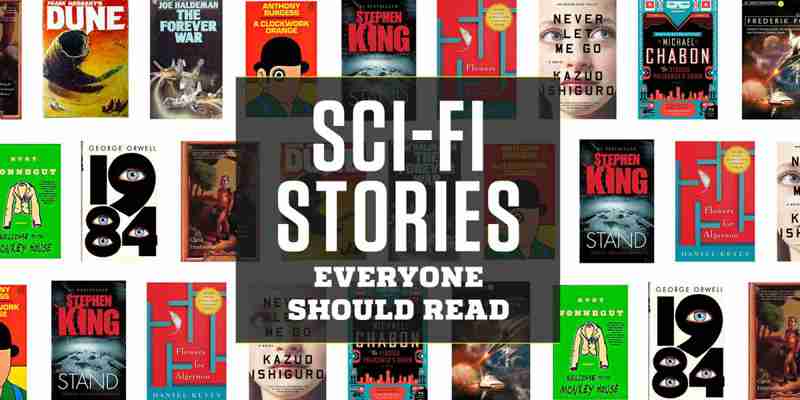
By Kurt Vonnegut Jr. (1968)
By Tom Chiarella. Great guy. Creative writing professor. Steals books though.
In 1973, when I was 12 years old, I stole a copy of Kurt Vonnegut's Breakfast of Champions from my aunt Betsy's mantle and read it in a day and a half. It was the first book I ever really chose, first book I really read with a greed for the ideas inside it. Notably, I think, I also liked the cover—bright orange with the title bent like a locomotive, and a stamp that read A NOVEL. Best cover ever, as far as I'm concerned. I'd know that book from a thousand paces. I stole it from my aunt after seeing it from across the room.
This was before Wikipedia, of course, but even then we had a need to know. A week later I went to the Monroe Avenue branch of the Rochester, New York, public library and looked up Vonnegut. The librarian gave me two copies of The Saturday Evening Post that included stories by the man himself; a hardback copy of God Bless You, Mr. Rosewater; and the single most dog-eared book I have ever come across in all my years of reading: Welcome to the Monkey House, the 1968 collection of Vonnegut's short stories. It was in three pieces, Scotch- and masking-taped into a hopeful tablet. The pages were bent, with flipped corners, and written on, underlined, and marked up with hot little stars by three different pens. "Sorry," the librarian said of the book. "It's the only copy we have. People love that book. They steal most copies we get." She glanced at me like the thief I was (see above) and smirked. "Short stories are easier, I guess."
I'd read my share of books by then, but I'd never even heard of a short story. I read the magazines and left them there, started the novel but I thought it was gassy and serious, so I left it there too. I took that used-up edition of Welcome to the Monkey House home with me, and I never took it back.
Kurt Vonnegut's best stories (and Welcome to the Monkey House contains the bulk of them) are hyperboles of love, or science-fiction fables and manifestos, torqued-up conceits run amok within the pretty narrow strictures of his plain-Jane prose. The best ones feel like they come from a writer imagined rather than real—as if they were written by the fictional sci-fi writer Kilgore Trout, I suppose, Vonnegut's nightshade image of himself. I'd never read a book like it. Never tumbled from one story to the next with the hope that it might be even better. Never lived in a circus of the absurd the way I did with that collection. I sometimes think I live there still.
Although I pressed on, and read everything Vonnegut ever wrote, I only liked four of his novels well enough to mention (Slaughterhouse-Five, Cat's Cradle, The Sirens of Titan, and Galápagos). His later essays and letters sometimes seemed incomprehensible, and as an older guy who traveled in literate and literary circles, I learned to not mention him as one of my favorites. Vonnegut was openly pooh-poohed in the stripped-down fluorescent light of the minimalist 1980s and the return of the big novel that followed. I let him drift out of my head until his death in 2007.
I still believe the work in Welcome to the Monkey House is his very best. Vonnegut lived 17 years as a writer before it appeared, and it contained the first story** he ever published, and stories most of the world had never seen, since they first appeared in places like Galaxy Science Fiction. It goes end to end on the guy. In the time he took to write all that and more, Vonnegut became the man he would remain: former soldier, family man, cranky recluse, unapologetic socialist, artist with pencil, commentator, and angry voice of common sense. He died revered, remembered, and reclaimed, the most moral writer of our age, a guy who was legitimately angry at us all because we weren't willing to start everything over again, since it had gone so wrong so fast. Kurt Vonnegut left us with a fistful of masterpieces, too, of unforgettable short stories, iconoclastic in their day, iconic in ours.
30 Best Sci-Fi Books of All Time
❦
Science fiction is a fascinating book genre. What’s so fantastic about it’s how it can encompass a wide variety of different themes. From dramatic space operas to post-apocalyptic worlds and everything in between.
Science fiction is the perfect genre to read if you’re looking to get lost in a good book. The concepts within the books are interesting and captivating. It’s easy to see why as they’re the perfect concoction of science, technology, and fantastical elements.
If you’re someone looking to read Sci-Fi for the first time, it can be a daunting genre to explore. We’ve put together a list of the 30 best science fiction books of all time.
This list includes a wide range of books, from science fiction classics to newer books that have taken the world by storm.
1. Frankenstein by Mary Shelley
When it comes to creating science fiction, many readers don’t realize Shelley was a pivotal figure in its creation. Frankenstein is a book that completely shaped the genre into what it has become today, and it was revolutionary for its time.
Not only was it revolutionary because a female author wrote it, but the concept was previously unexplored too. Frankenstein is a fantastic book exploring science, humanity, and the idea of monsters linking to people rather than the monsters they have created.
It reflects politics and society and focuses on how real science can be twisted and abused. There are countless retellings of Frankenstein, including movie adaptations. While this is an old science fiction book, it has stood the test of time.

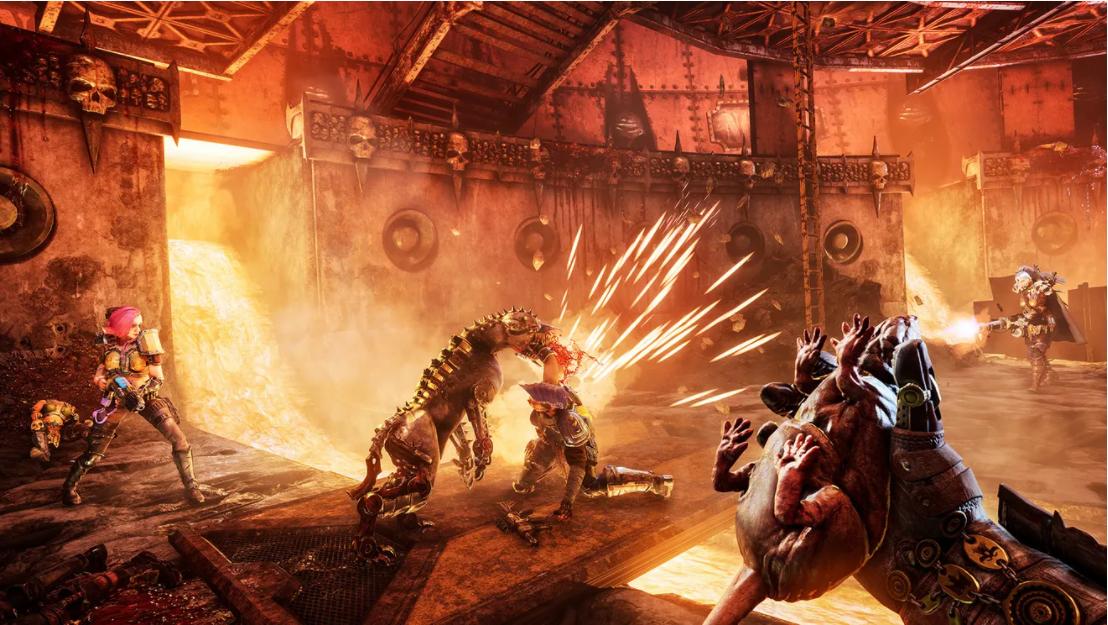

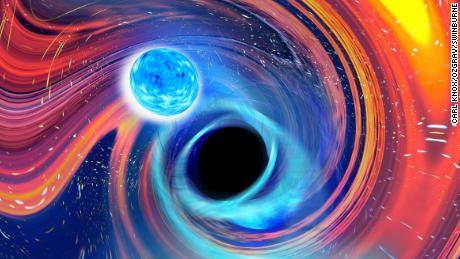


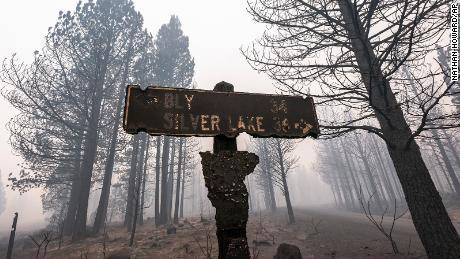




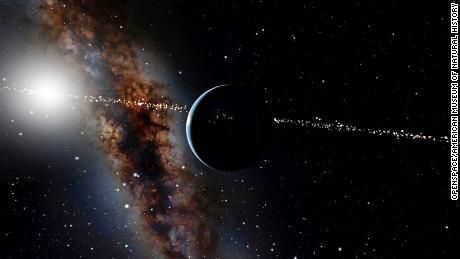
Write a Comment